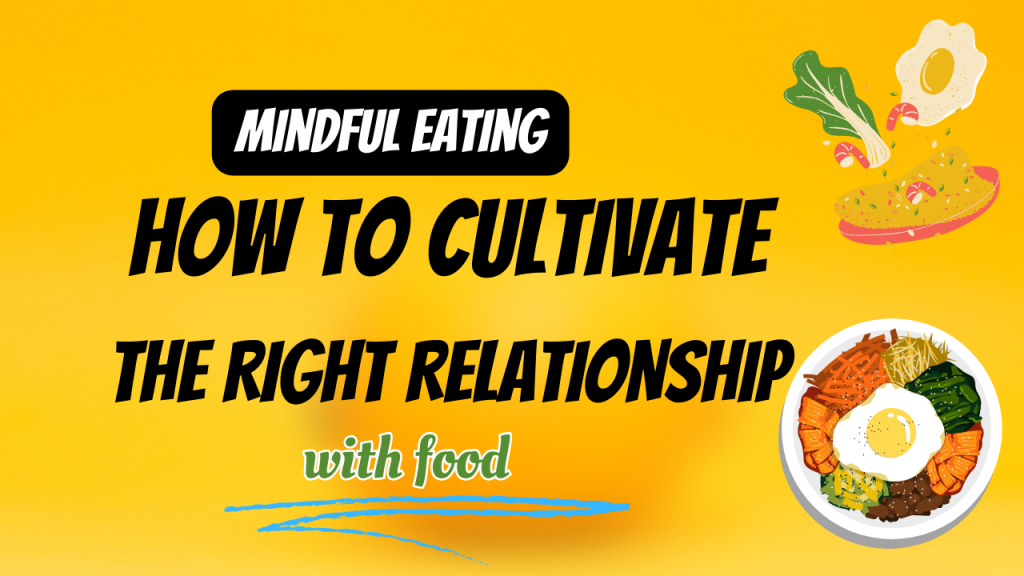Mindful Eating: How to Cultivate a Healthy Relationship with Food
1. Introduction
In a world of constant distractions and fast-paced living, the concept of mindful eating has emerged as a beacon of health and well-being. Mindful eating is not just about what you eat but how you eat, fostering a profound connection between your mind and body. In this blog post, we will explore the principles of mindful eating and provide actionable tips on how to cultivate a healthy relationship with food.
2. Understanding Mindful Eating
Mindful eating is a practice rooted in mindfulness, an ancient Buddhist concept that involves paying attention to the present moment without judgment. When applied to eating, it encourages a heightened awareness of the sensory experiences associated with food, including taste, texture, and aroma. This intentional focus on the act of eating brings a host of benefits that extend beyond mere nutrition.
3. Slow Down and Savor
In our hectic lives, meals are often rushed affairs. Mindful eating encourages you to slow down and savor each bite. Instead of mindlessly consuming your food, take the time to appreciate its flavors and textures. Engage your senses by paying attention to the colors, smells, and even the sounds of your meal. This deliberate approach not only enhances the pleasure of eating but also allows your body to signal when it’s satisfied, preventing overeating.
4. Listen to Your Body
One key aspect of mindful eating is tuning in to your body’s hunger and fullness cues. Before reaching for a snack or another serving, pause and assess your level of hunger. Eat when you’re hungry, and stop when you’re comfortably full. This mindful awareness prevents emotional or boredom-driven eating, fostering a more intuitive and healthy relationship with food.
5. Banish Distractions
In a world dominated by screens and constant notifications, it’s easy to fall into the habit of eating while watching TV or scrolling through your phone. Mindful eating encourages you to create a dedicated space and time for meals, free from distractions. By focusing solely on your food, you can appreciate the sensory experience, improve digestion, and promote a sense of satisfaction.
6. Embrace Gratitude
Practicing gratitude for your food is a powerful aspect of mindful eating. Before diving into your meal, take a moment to reflect on the journey your food has taken—from farm to table. Consider the effort involved in its production and the nourishment it provides. This mindset shift transforms eating into a mindful, gratitude-filled experience, fostering a deeper connection with the food you consume.
7. Recognize Emotional Eating
Mindful eating encourages an awareness of emotional triggers that may lead to unhealthy eating habits. Pay attention to your emotional state when reaching for food. Are you eating out of boredom, stress, or sadness? By recognizing these patterns, you can develop healthier coping mechanisms and make more conscious choices about when and what to eat.
8. Practical Tips for Cultivating Mindful Eating Habits
Now that we’ve explored the principles of mindful eating, let’s delve into some practical tips to help you incorporate this transformative practice into your daily life:
Start with Small Bites: Begin by dedicating a few minutes to mindful eating during one meal each day. Gradually increase the duration as you become more comfortable with the practice.
Engage Your Senses: Take a moment to observe the colors, textures, and aromas of your food before taking a bite. Chew slowly, savoring each flavor. Notice how your body responds to the act of eating.
Create a Tranquil Eating Space: Designate a quiet, comfortable space for meals. Turn off electronic devices, and create an atmosphere that allows you to focus on the pleasure of eating without distractions.
Practice Gratitude: Express gratitude for your food by reflecting on its origin and the effort involved in bringing it to your table. This mindful perspective can deepen your connection to the nourishment your meals provide.
Listen to Your Body: Pay attention to hunger and fullness cues. Eat when you’re hungry, and stop when you’re satisfied. This intuitive approach fosters a healthier relationship with food and prevents overeating.
9. Conclusion
Mindful eating is a transformative practice that goes beyond the plate, influencing the way we approach and appreciate food. By cultivating a mindful relationship with what we eat, we can break free from unhealthy habits, savor the pleasures of dining, and nourish our bodies in a way that promotes overall well-being. Start your journey toward mindful eating today, and discover the profound impact it can have on your health and happiness.



